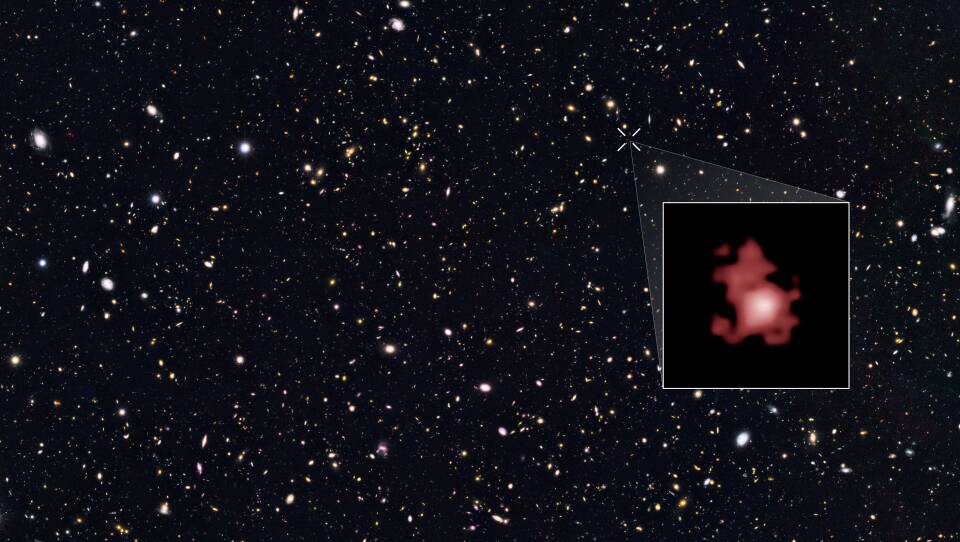Between the announcement this week that scientists have detected primordial gravitation waves and FOX's reboot of Carl Sagan's groundbreaking series, "Cosmos", the Big Bang theory is enjoying its biggest moment since it banged the observable universe into existence 13.8 billion years ago.
While the Big Bang is as old as the universe itself, our concept of it is still strikingly new — less than 100 years old. And if you dig into its origins, you come across a curious fact.
Atheists, devout Christians, you might want to sit down for this: The Big Bang theory was first proposed by a Roman Catholic priest.
It wasn't just any priest. It was Monseigneur George Lemaître, a brilliant Belgian who entered the priesthood following his service as an artillery officer in the Belgian army during World War I. He was also an accomplished astronomer and a talented mathematician and physician. After earning his graduate degree in astronomy from the University of Cambridge in England, he came to Boston and spent a year at the Harvard College Observatory before earning his doctorate at MIT.
In the late 1920s, Lemaître quietly put forth a theory he called his "hypothesis of the primeval atom." At the time, Einstein’s notion of a finite-sized, static universe ruled the day. But the fields of astronomy and cosmology were developing rapidly on the heels of Einstein’s breakthrough 1916 Theory of General Relativity. And as brilliant minds began extrapolating new equations from Einstein’s work, a static universe was posing some serious problems in the math. Problems that in many cases, could be ironed out if the universe was not fixed, but rather growing.
Lemaître imagined that if the universe was expanding, it had to be expanding from somewhere and some point in time. He figured that if you traced the idea of the universe back in time, all the way to the very beginning, everything had to converge into a single point. Lemaître called that point a superatom. He suggested that the expansion of the universe had resulted from the explosion of this superatom that hurled materials in all directions, and set the universe as we know it in motion.
"This is the most beautiful and satisfactory explanation of creation to which I have ever listened." -Albert Einstein
At a conference in the 1930s, where Lemaître presented his theory, Einstein reportedly remarked, "This is the most beautiful and satisfactory explanation of creation to which I have ever listened."
As astonishing as Lemaître's idea was, perhaps equally surprising to us now was the reaction of the church. Lemaître was not jailed by the Pope like Galileo. He was not excommunicated the way Johannes Keppler was by the Lutheran Church. Quite the opposite. In the early 1950s, Pope Pius XII not only declared that the big bang and the Catholic concept of creation were compatible; he embraced Lemaître's idea as scientific validation for the existence of God and of Catholicism.
For his part, Lemaître was not pleased with the Pope’s position. He believed fiercely in the separation of church and lab. He viewed religion and science as two, equally valid, distinct ways of interpreting the world, both of which he believed in with deep conviction:
"We may speak of this event as of a beginning. I do not say a creation. Physically it is a beginning in the sense that if something happened before, it has no observable influence on the behavior of our universe, as any feature of matter before this beginning has been completely lost by the extreme contraction at the theoretical zero. Any preexistence of the universe has a metaphysical character...The question if it was really a beginning or rather a creation, something started from nothing, is a philosophical question which cannot be settled by physical or astronomical considerations."
It might seem surprising today to read words like this from a man of God. Consider the recent Bill Nye v. Ken Ham debate at the Creation Museum, or browse the comment thread in an article about the Cosmos reboot. We're living in climate where science and religion are not just framed as a debate, but often as a zero sum game. And that debate is not just at times divisive, it is sometimes downright derisive.
Don't try to bend the Scriptures to fit "Evolution" or "The Big Bang." It did NOT happen that way. God created every atom out of NOTHING.
If you think #cosmos shouldn’t teach facts that contradict with your beliefs then perhaps you should re-evaluate your beliefs. #FactsWin
No matter how much I learn about the Big Bang theory & evolution I still believe w all my heart & soul that God created the earth in 6 days
Today, experimental PROOF that the Big Bang happened. How ever will the assholes @foxandfriends explain this to their moron fans?
With the big bang enjoying a moment in the sun, perhaps it's no surprise that those who view science and religion as an "either/or" way of explaining the universe or the human condition are strengthening their resolve.
But, it might also be an opportunity to look back to the man who advanced the very theory that started the debate. If science does indeed pose a problem for religion, or if religion does for science, they appear to be problems that Lemaître solved a long time ago.





